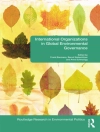<b>Honourable Mention – 2023 ASR Prize for Best Africa-focused Anthology or Edited Collection</b>
<b>Innovative study of state politics, identity and buildings that sheds new light on the links between the material and the ideational realms of contemporary life in Africa.</b>
Buildings shape politics in the ways they define communities, enable economic activity, reflect political ideas, and impact state-society relations. They are materially and symbolically interwoven with the everyday lives of elites and citizens, as well global flows of money, goods, and contracts. Yet, to date, there has been no research that explicitly connects debates about Africa's domestic and international politics with the study of architecture. This innovative book fills this gap, providing a new and compelling reading of the politics of identity in sub-Saharan Africa through an examination of some of its most significant buildings. Using case studies from nine countries across sub-Saharan Africa, this volume reveals how they are commissioned and built, how they enable elites to project power, and how they form a basis for popular conceptions of the state. Exploring a diverse range of buildings including parliaments, airports, prisons, ministries, regional institutions, libraries, universities, shopping malls, public housing, cathedrals and palaces, the contributors suggest a innovative perspective on African politics, identity and urban development. This book will be a compelling reference for scholars and students of African politics, development studies and city life in its elaboration of and challenges to established concepts and arguments about the relationship between material objects and political ideas.
This book is available as an Open Access ebook under the Creative Commons license CC-BY-NC-ND.
Table des matières
Introduction: Buildings are the stuff of politics
<i>Daniel Mulugeta, Joanne Tomkinson and Julia Gallagher</i>
PART 1: MAKING
1. Global ambitions and national identity in Ethiopia's airport expansion
<i>Joanne Tomkinson and Dawit Yekoyesew</i>
2. Building heaven on earth: Political rhetoric and ritual over Ghana's national cathedral
<i>Emmanuel K. Ofori-Sarpong</i>
3. China's 'parliament building gift' to Malawi: Exploring its rationale, tensions and asymmetrical gains
<i>Innocent Batsani-Ncube</i>
4. New homes for a new state: Foreign ideas in Ghana's public housing programmes
<i>Irene</i> <i>Appeaning Addo</i>
PART 2: LIVING
5. Beautiful state/ugly state: Architecture and political authority in Côte d'Ivoire
<i>Julia Gallagher </i><i>and Yah Ariane Bernadette N'djoré</i>
6. Colonial legacies in architectures of consumption: The case of Sam Levy's village in Harare
<i>Tonderai Koschke</i>
7. Public spaces? Public goods? Reinventing Nairobi's public libraries
<i>Marie Gibert</i>
8. The role of architecture in South African detention cases during the apartheid era
<i>Yusuf Patel</i>
PART 3: IMAGINING
9. Pan-African imaginations: The AU building and its popular imagery in Ethiopia and Nigeria
<i>Daniel Mulugeta</i>
10. Asantean Noumena: The politics and imaginary reconstruction of the Asante Palace, Kumase
<i>Tony Yeboah</i>
11. From prison to freedom: Overwriting the past, imagining Nigeria
<i>Laura Routley</i>
Afterword: Theorising the politics of unformal(ised) architectures
<i>Kuukuwa Manful</i>
Bibliography
Index
A propos de l’auteur
<b>Kuukuwa Manful </b>is a Ph D candidate in the Politics Department at SOAS, University of London. Her research examines the sociopolitics of nation-building, citizenship and modernity in Ghana through a study of school buildings and the building of schools.












